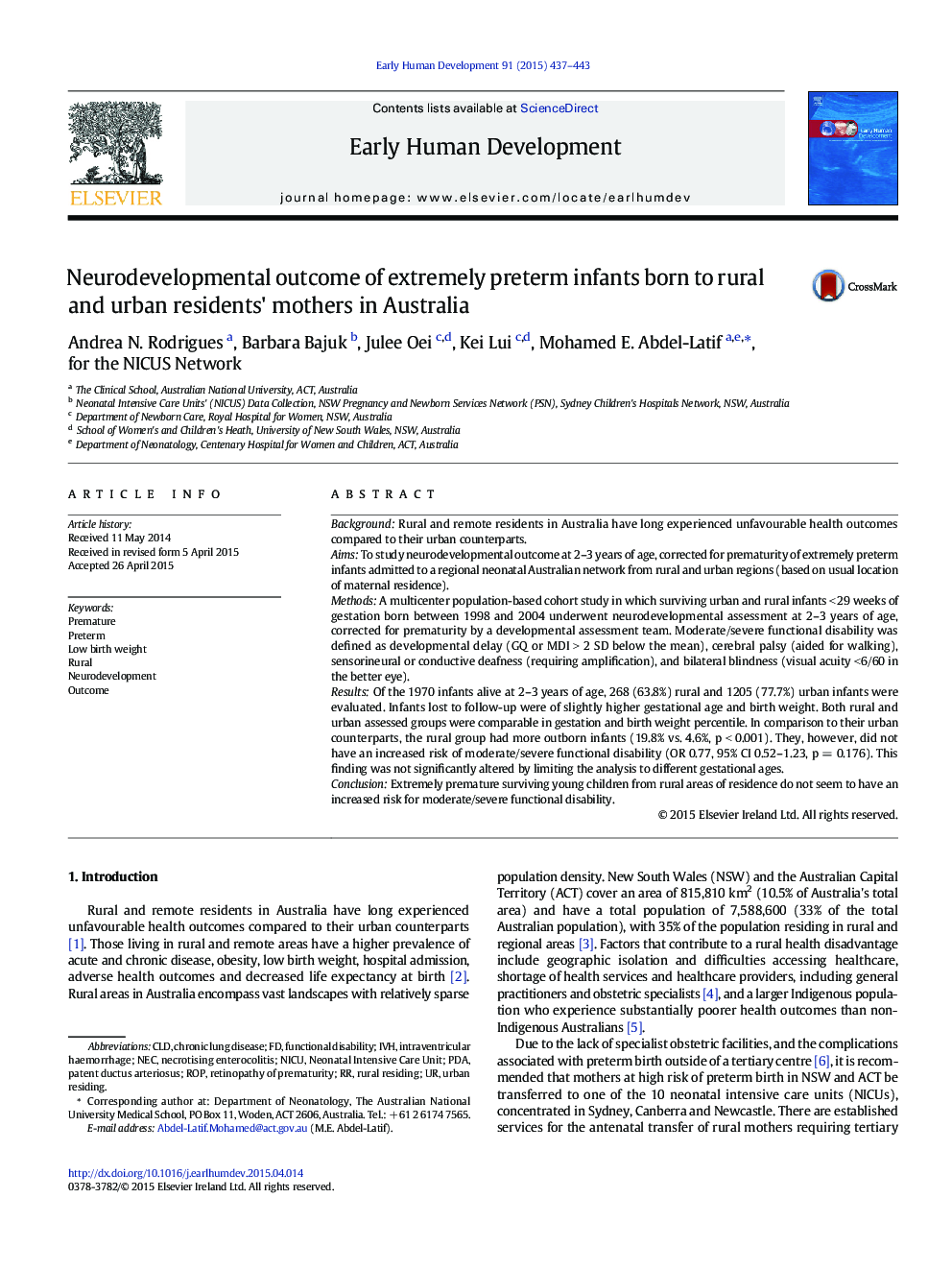| Article ID | Journal | Published Year | Pages | File Type |
|---|---|---|---|---|
| 3916400 | Early Human Development | 2015 | 7 Pages |
•Rural residents experience less favourable health outcomes compared with urban residents.•Mortality but not morbidity is higher in extremely preterm infants born to rural mothers compared with urban mothers.•There is no difference in the rate of functional disability between rural and urban children born extremely preterm.•Advances in perinatal care and retrieval services may have helped reduce the rural residents' health disadvantage.
BackgroundRural and remote residents in Australia have long experienced unfavourable health outcomes compared to their urban counterparts.AimsTo study neurodevelopmental outcome at 2–3 years of age, corrected for prematurity of extremely preterm infants admitted to a regional neonatal Australian network from rural and urban regions (based on usual location of maternal residence).MethodsA multicenter population-based cohort study in which surviving urban and rural infants < 29 weeks of gestation born between 1998 and 2004 underwent neurodevelopmental assessment at 2–3 years of age, corrected for prematurity by a developmental assessment team. Moderate/severe functional disability was defined as developmental delay (GQ or MDI > 2 SD below the mean), cerebral palsy (aided for walking), sensorineural or conductive deafness (requiring amplification), and bilateral blindness (visual acuity < 6/60 in the better eye).ResultsOf the 1970 infants alive at 2–3 years of age, 268 (63.8%) rural and 1205 (77.7%) urban infants were evaluated. Infants lost to follow-up were of slightly higher gestational age and birth weight. Both rural and urban assessed groups were comparable in gestation and birth weight percentile. In comparison to their urban counterparts, the rural group had more outborn infants (19.8% vs. 4.6%, p < 0.001). They, however, did not have an increased risk of moderate/severe functional disability (OR 0.77, 95% CI 0.52–1.23, p = 0.176). This finding was not significantly altered by limiting the analysis to different gestational ages.ConclusionExtremely premature surviving young children from rural areas of residence do not seem to have an increased risk for moderate/severe functional disability.
